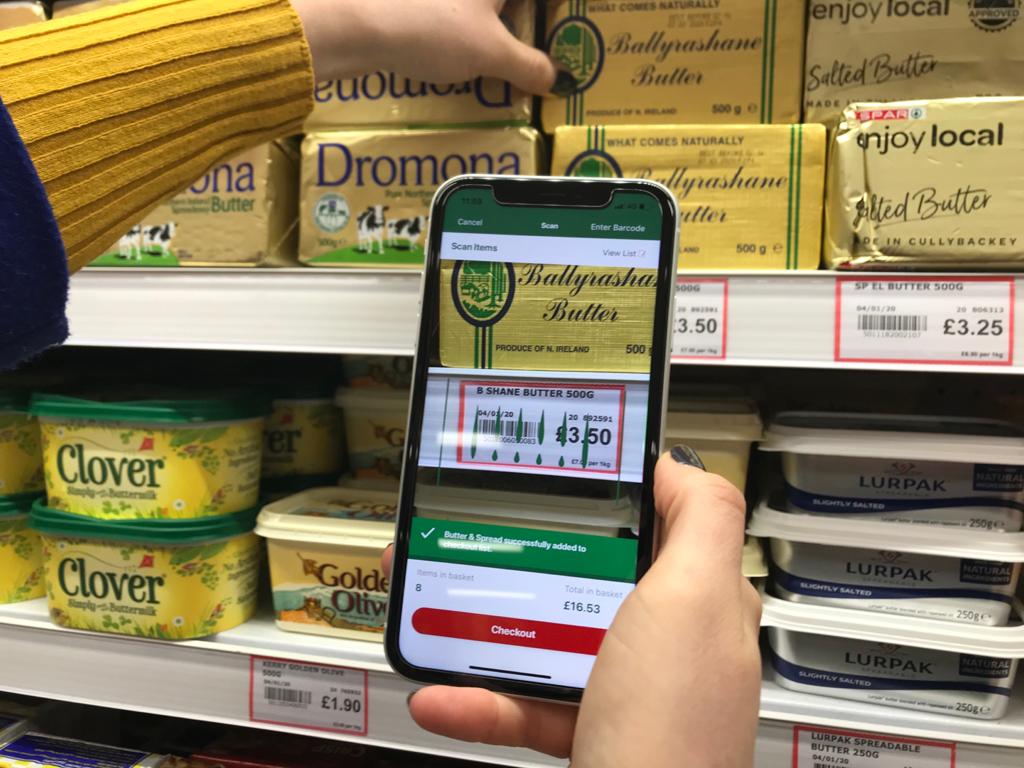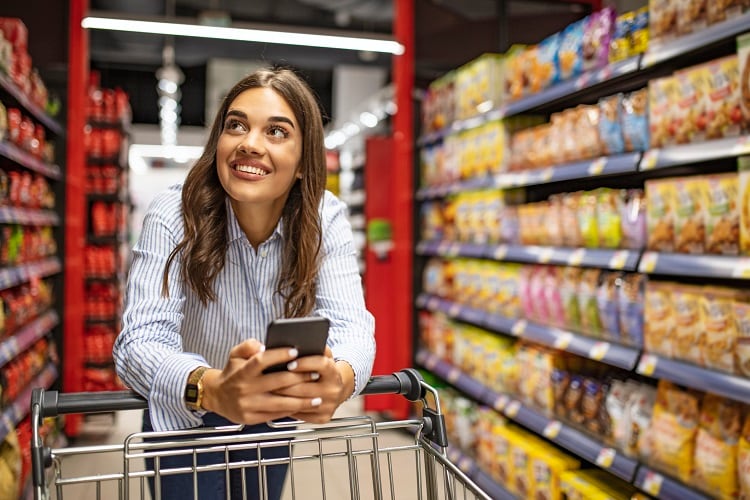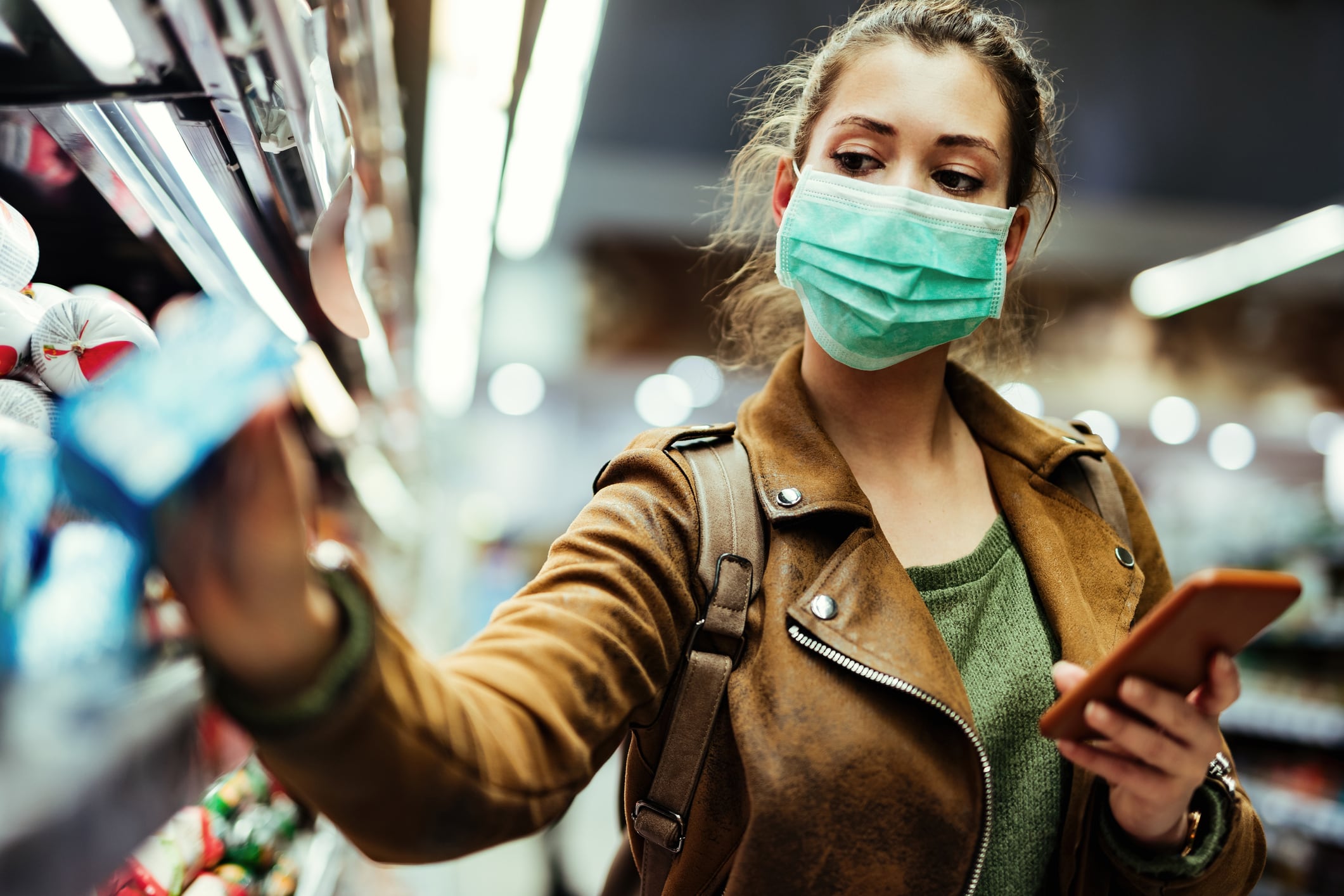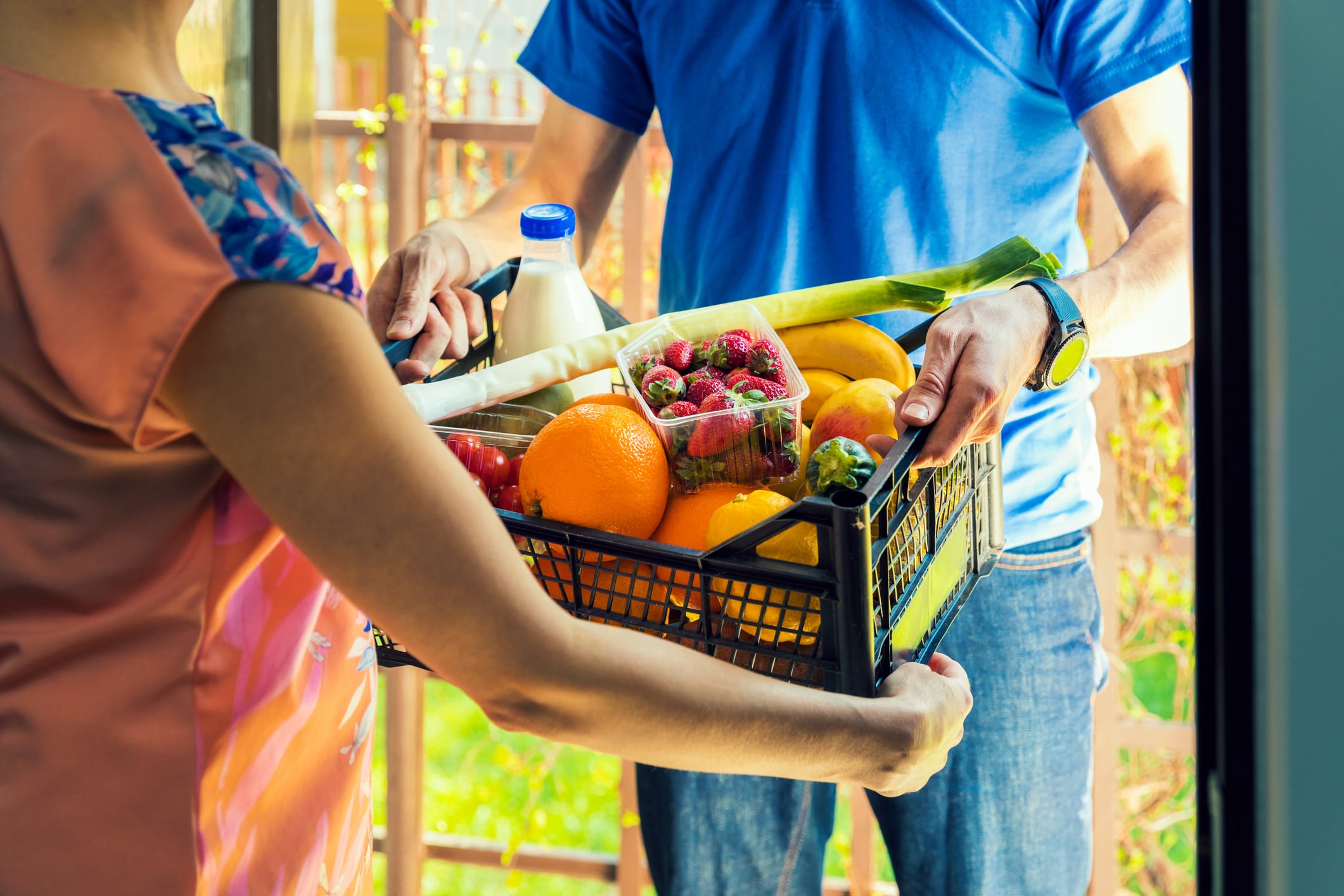With supermarkets facing safety checks and the prospect of fines for flouting social distancing policies, not to mention widespread consumer dissatisfaction, retail bosses face rising pressure to make the in-store shopping experience more efficient and safe.
Ubamarket’s retail tech app technology boasts a range of AI-backed features promising consumers the fastest ‘in and out’ shopping experience, thus offering solutions to a number of the problems posed by continued social distancing and hygiene measures.
"Even with the massive emergence of e-commerce over the last 10 years, 80% of shoppers across the UK and Europe would still prefer to go into supermarkets to get their grocery items,” Broome told FoodNavigator. "The solution is to make the in-store experience ultra-convenient for consumers," he said, via the latest tech innovations. These, in turn, can save the retailers the expense of, say, delivery systems or in-store self-service checkouts. Ubamarket’s app is currently live in Spa stores across Ireland and has been trialling in Coop stores in the UK. A European roll-out is expected later this year. It promises, via a few features, to do away with the need for time-consuming queues, unhygienic checkouts, and confusion about where products are and whether they are in stock. These features include:
Supermarket sat-nav
The app claims it can guide customers around the store to products they have saved on their personal shopping list on their iPhone or smartphone device. It does this by a ‘supermarket sat-nav’ which will automatically arrange the shopper’s list in the correct order so they can find the items via the fastest route without, for example, having to turn around and bump into a group of other shoppers behind them.
According to Broome, this also allows them to cut their spending, while also hugely reducing their shopping time, which may be necessary in order to follow social distancing measures.
Totally till-less
Customers can scan products on shelves as they shop and then check-out and make payments in-app, completely bypassing any queues and remaining contact-free.
This provides clear advantages to shoppers unwilling to wait in queues, providing the app is fast enough. “The main advantage is that they don't need to go to a physical till or a self-checkout unit. You can just tap to pay on your phone in a designated point of the store and then go,” said Broome. The own-device payment will become more dominant, he anticipates, and make the cost of retailers of installing self-checkout units unnecessary. "Over time I think more people will become used to using their own device as the till, just as they will in restaurants and bars."
Facial recognition
But what if customers are buying alcohol or other restricted items that require authorisation from a member of staff? The app can approve, via facial recognition software, the customer for products which would typically require an age check with no need for assistance by store managers or cashiers.
Statistically this is more accurate than the human eye, claimed Broome. "It's also well known that people by less alcohol at self-checkout tills because they have to wait to get authorised,” he added. “With facial recognition, alcohol sales will not dip.”
Automatic loyalty points
Ubamarket’s app offers exclusive access to deals and offers reserved for app users, and customers automatically collect loyalty points at their local stores.
Dietary and allergen sensitive shopping
Customers receive dietary and allergen alerts for every product and can shop according to dietary or allergen requirements, reducing the need to approach members of staff, and helping to stay contact-free
Environmentally conscious shopping
In order to help customers and retailers shop more sustainably, the app provides information on which packaging can and can’t be recycled in a customer's shop, and will summarise the environmental footprint of the overall shop at checkout with the Plastic Alerts feature.
Will new consumer behaviour stick or quickly revert back to normal?
Broome is obviously banking on a complete and absolute shift in consumer behaviour towards social distancing and hygiene.
"We were developing all this stuff anyway,” he said. “But Covid has accelerated demand for it.” Covid will be solved, he says, but shoppers are more aware of hygiene and have become used to not being on top of each other in a queue or communally touching the same screens and keyboards. “People are forming habits of wanting to be that little bit more distant,” he stated. What’s more, people are more tech savvy and are embracing technology like never before across all age groups thanks to things like Zoom.
“Long queues and social distancing pose a significant problem for supermarkets and customers alike, and with supermarkets facing penalties for not subjecting their customers to strict social distancing regulations, it is vital that retail leaders look to implement more effective and efficient ways of helping consumers shop more efficiently and safely,” he added.
"The implementation of retail technology holds the key to building the future of retail that supports our new shopping habits whilst also helping retailers to dramatically increase the efficiency and speed with which customers move through the store, pay for their shopping, and exit safely.”





